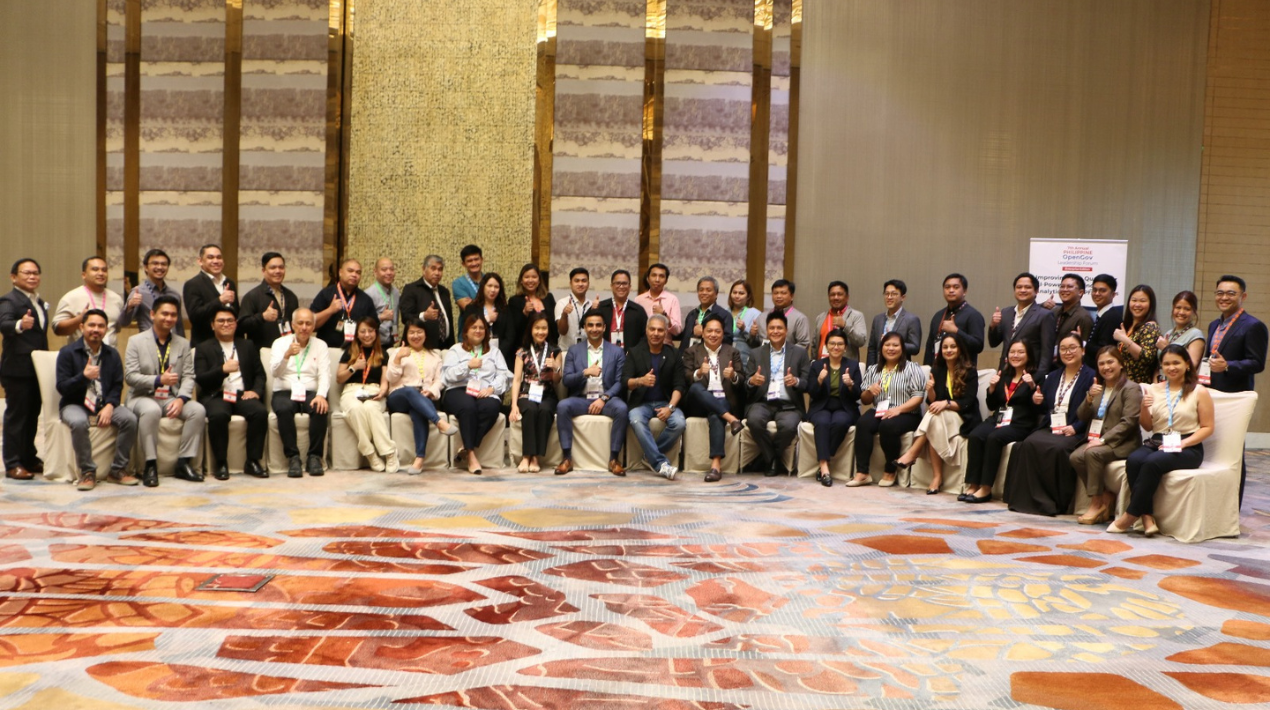
|
Getting your Trinity Audio player ready...
|
This article is the second of a two-part series. You can read Part 1 here.
 Data is more critical than ever as financial institutions in the Philippines navigate growing complexity and competition. The increasing adoption of artificial intelligence (AI) in financial analytics enables organisations to foster innovation, enhance operational efficiency, and make more informed strategic decisions.
Data is more critical than ever as financial institutions in the Philippines navigate growing complexity and competition. The increasing adoption of artificial intelligence (AI) in financial analytics enables organisations to foster innovation, enhance operational efficiency, and make more informed strategic decisions.
Financial institutions in the Philippines are rapidly using artificial intelligence (AI) in financial analytics to enhance innovation and efficiency. However, AI performance is dependent on data quality. Data mismatches caused by formatting discrepancies or entry errors can invalidate insights and reduce trust in AI choices. Traditional technologies sometimes devote 80% of the work to manual data preparation, leaving only 20% for analysis. Furthermore, visualisation tools might increase complexity and jeopardise data integrity.
To fully realise the potential of AI in the finance sector, Philippine financial institutions must invest in robust data platforms. Clean, dependable data helps AI to provide accurate projections, identify patterns, and support informed decision-making. However, maintaining high data quality is difficult due to factors such as scattered sources, inconsistent formats, and out-of-date technologies. Overcoming these challenges necessitates a solid plan that includes standardised processes, current management tools, and regular quality inspections.
As the financial industry evolves, artificial intelligence (AI) is becoming more important in financial analytics, revolutionising data optimisation in the Financial Services Industry. AI improves risk management, streamlines operations, and accelerates tasks like data purification and visualisation. Prioritising data quality enables organisations to maximise AI’s potential, improve financial outcomes, and achieve strategic objectives.
The OpenGov Breakfast Insight on 25 September 2024, at Shangri-La the Fort Manila, explored the transformative impact of advanced financial management solutions on the Financial Services Industry (FSI) in the Philippines.
A distinguished panel of experts offered practical insights on key strategies to drive the transformative impact of advanced financial management solutions while encouraging innovation.
Patrick M. Meneses, Senior VP and Chief Data Officer at Security Bank Corporation, and Sunit Kapoor, Business Strategy and Value Engineering Advisor at Qlik, shared their valuable perspectives, providing essential guidance for organisations aiming to effectively safeguard their operations.
The session examined how AI-powered financial analytics is reshaping the Philippine banking sector by improving data accuracy, decision-making, and operational efficiency. It highlighted AI’s role in enhancing risk management, driving innovation, and ensuring compliance, while also addressing challenges such as data quality and ethical concerns, with a focus on transparency and the need for modern data infrastructure.
AI-Powered Financial Analytics: Raising Philippine Data Quality Standards
Mohit highlights AI’s potential to transform financial analytics in the Philippines by improving data quality, accuracy, and decision-making through advanced algorithms and machine learning models. In today’s complex financial market, technological integration enables organisations to manage risks, grab opportunities, and adhere to global norms.
“The integration of AI allows us to not only streamline operations but also unlock new levels of insight that were previously unattainable,” he observes. “With AI, we can anticipate market movements and respond more efficiently, keeping us ahead of the curve.”

Patrick M. Meneses, Senior VP and Chief Data Officer, Security Bank Corporation, highlights AI as a game changer for financial analytics in the Philippine banking sector. AI boosts data accuracy, and decision-making and helps institutions manage risks and opportunities more effectively, leading to greater efficiency and innovation.
By automating data cleansing and validation, AI ensures accurate information for risk management and strategic planning, while enabling predictive analytics for trend forecasting, credit risk assessment, and customer segmentation.
“Establishing trust in data is a critical difficulty when using AI in banking.” Patrick believes. “If you want monetisable value, there must be trust.”
The significance of data control in the financial sector cannot be underestimated. Data governance professionals need to transcend traditional back-office roles and engage more directly with data scientists and clients to ensure the integrity of the data.
AI enhances compliance by monitoring transactions for anomalies, reducing manual oversight and building trust among stakeholders. Its real-time data processing enables swift adaptation to market changes, while AI-driven Natural Language Processing (NLP) delivers insights into customer preferences.
Additionally, AI facilitates seamless data integration across systems, offering a unified view that improves strategic planning, drives innovation, and enhances sector resilience.
Offering valuable insights into AI’s role in the Philippine financial sector, Patrick asserts, “Organisations are increasingly prioritising AutoML to enhance their metadata. In this context, a robust data architecture is crucial for effective AI implementation. Without a comprehensive data dictionary, the full potential of AI remains largely untapped.”
He underscores the necessity of developing a comprehensive metadata catalogue, essential for scaling AI solutions, reminding delegates that, “The foundation you establish today will shape your future capabilities with AI.”
Patrick highlights the challenges of transforming collected data into actionable insights, noting that data silos restrict an organisation’s ability to fully utilise information. Additionally, data quality is critical, as inconsistencies and inaccuracies can undermine analytics efforts, making high-quality data essential for reliable insights.
Patrick explores the nuanced relationship between innovation and transparency in data management within financial institutions. He emphasises the ongoing necessity for explainability in AI, warning against the reliance on overly complex “black box” models that can hinder understanding and accountability.
“While fostering innovation is essential, we must ensure that our AI systems are transparent and interpretable,” he asserts.
Patrick appreciates that there are significant disparities in resources and data infrastructure among countries, acknowledging that this gap can hinder the progress of financial institutions in the region.
ASEAN financial organisations must embrace a forward-looking strategy focused on modernising data systems and investing in advanced technologies. This will enable them to leverage AI and other innovations, enhancing competitiveness and improving client service.
“Southeast Asia is poised for tremendous growth, but to truly harness this potential, we must engage in strategic thinking and invest in robust data systems,” he asserts. “As we explore the frontiers of AI, we must remain vigilant about its ethical implications. Our focus should not only be on what AI can accomplish but also on what we ought to pursue for the greater good.”

Sunit Kapoor, Business Strategy and Value Engineering Advisor, Qlik, explains that AI-driven financial analytics offer substantial advantages that empower institutions to make more informed and strategic decisions. These tools enhance predictive capabilities by allowing organisations to analyse vast amounts of historical data, enabling them to forecast future trends and market movements more effectively.
“The ability to predict outcomes with greater accuracy empowers financial leaders to make proactive decisions,” Sunit explains. “This enhanced foresight mitigates risks and enables organisations to seize emerging opportunities.
By providing deeper insights into customer behaviour, operational efficiency, and risk management, AI significantly enhances data-driven decision-making. This capability allows financial institutions to better understand their clients’ needs and preferences, leading to more informed strategies.
Moreover, AI facilitates the creation of customised strategies tailored to specific customer segments. This personalisation enhances customer satisfaction and loyalty, giving organisations a competitive edge in the marketplace.
Additionally, AI automates repetitive tasks that often consume valuable time and resources. Handling these mundane responsibilities, AI enables financial professionals to concentrate on higher-value tasks that require critical thinking and creativity, ultimately driving better outcomes for the organisation.
Sunit asserts that AI is being utilised across multiple functions to drive revenue, mitigate risk, and optimise back-office operations. He encourages delegates to explore how AI can elevate their roles.
“The essence of AI lies in its ability to predict outcomes that enhance your job performance,” he explains.
AI provides powerful predictive analytics that enables businesses to forecast market trends and customer preferences, uncovering new revenue opportunities. Financial organisations can leverage this data to craft targeted strategies that adapt to evolving dynamics, positioning themselves for success in a competitive landscape.
Sunit further highlights the importance of AI in proactive risk management and uncovering growth opportunities, stating, “While loans have surged by 24% in the current climate, the increasing non-performing loan ratios are concerning. AI can empower financial institutions to create better products and streamline customer onboarding processes.”
Integrating AI into value engineering frameworks allows financial organisations to maximise ROI while enhancing data quality and operational efficiency. By automating data cleaning and validation, AI ensures accurate decision-making and serves as the foundation for effective analytics.
Sunit highlighted the potential drawbacks of using AI in financial analytics and emphasised the importance of ethical AI, particularly in combating misinformation. He stressed that while AI can offer significant advantages, it is crucial to implement robust ethical guidelines to ensure that these technologies are used responsibly.
Citing Italy’s recent ban on specific AI applications, he highlighted this as a cautionary tale that underscores the dangers of unregulated AI deployment, illustrating the pressing need for a balanced approach to innovation and oversight.
Mohit believes “banning things is not the answer” and advocates for a more balanced approach to navigating the challenges posed by technology and data management. Instead of imposing outright bans, stakeholders should focus on fostering dialogue and developing frameworks that allow for innovation while also addressing ethical concerns. This balanced perspective, he argues, is crucial for harnessing the benefits of technology without stifling progress or creating unnecessary barriers.
In closing, Sunit emphasised the critical need for openness in AI, “Transparency in AI is essential; we must ensure our models are explainable to build trust among stakeholders and foster responsible innovation.”
Closing Remarks
JJ thanked the delegates for dedicating their time to engage in discussions and becoming key drivers of innovation in the era of AI-powered financial analytics. He emphasised that this gathering is more than just a remarkable event – it is a recognition of the vital importance of cross-sector collaboration in overcoming challenges and seizing the opportunities brought by technological advancements.
The Philippines’ financial sector stands at a critical juncture in improving data quality for AI-powered financial analytics, necessitating a shift in how data is perceived, managed, and utilised. In this field, decisions must be grounded in timeliness, accuracy, and reliability.
While integrating AI into financial systems offers remarkable insights and efficiencies, the effectiveness of these systems hinges on the quality of the data they rely on. Fragmented or inaccurate data will compromise the outcomes.
Mohit observes that while AI presents tremendous potential for enhancing efficiency and decision-making across various sectors, it also brings a set of unique challenges that organisations must confront.
Organisations need to ensure that their data is not only accurate but also appropriately categorised and protected from unauthorised access. These concerns underline the complexity of managing data in an AI-driven environment and the importance of having robust systems and protocols in place to navigate these challenges effectively.
By prioritising effective data management, organisations can mitigate risks and harness the full potential of AI, ultimately driving innovation and maintaining a competitive edge in their respective markets.
Lastly, financial institutions in the Philippines must recognise that adopting AI-powered financial analytics entails more than just implementing new technology, it involves changing their approach to data management and quality improvement. The ability to harness AI’s power will be determined by how effectively businesses improve the quality of their data.
As the Philippines’ financial sector evolves, organisations must prioritise data quality and invest in the infrastructure and policies required to support AI-powered innovation.
“Together, we can shape a future where data-driven decision-making and AI-powered analytics drive the next wave of financial transformation in the Philippines,” Mohit concluded.
This article is the second of a two-part series. You can read Part 1 here.
















